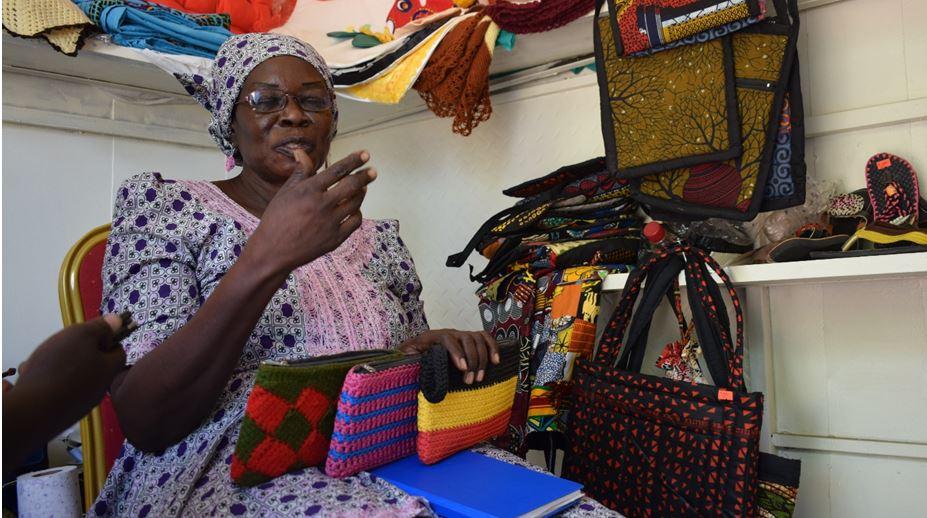Africa-Press – South-Sudan. Financial independence is emerging as a primary requirement for stabilising the living standards of rural women who struggle for a living in the states.
The lives of some women in the country have transformed since they secured markets for their crafts in the regional markets after an intervention by the Craft Centre project.
Since its establishment in 2014 Craft Centre in South Sudan has been empowering local women to weave crafts, sell them in regional markets, make money, and boost their living conditions.
With over 300 women working in the value chain, Florence Gordon, the Managing Director of the South Sudan Women Entrepreneur Association, has made it her mission to assist the women in breaking out of their local markets and achieving regional and international prominence.
“Weaving was designed to bring local women together by changing their thinking from local weavers to entrepreneurs and adding value to their products. The business was built to showcase and sell their products as well as exhibit them to regional markets,” Gordon said.
Pots, baskets, winnowing baskets, calabashes, beads, and African fabrics are available for purchase at the Craft Centre.
As South Sudanese crafts transcend international borders, Gordon said she has been able to display South Sudanese products in Rwanda, Tanzania, Egypt, and China.
She said the displays have motivated her desire to highlight the greatest products and draw regional and international attention to South Sudan.
“It made me glad to see African ladies displaying their own locally created products; we can no longer rely on China to supply us with goods. We have started making our own African crafts.
“We sell our goods, but the currency rate is still a huge issue. Because we rely on dollars, volatility in foreign currency rates makes it difficult to maintain profits. When we wanted to sell in regional markets, individuals complained that South Sudanese products were too expensive,” Ms Gordon stresses.
She adds: “If you go to the market and discover that everyone is selling tomatoes and onions, you must differentiate your products especially if you want to stand out in the regional markets.”
For Gordon, she no longer fights to find a market for her items since she has added light of creativity to the craft centre products.
“It makes me happy that my goods are being bought wherever I travel since they are unique, organic, and from a distinct culture.” They’ll buy it if they like it.”
Good communication skills also seems to have boosted the market for Ms. Gordon’s products. “It is critical to communicate. It’s critical to pay attention to your tone of voice. To attract customers, you must provide excellent customer service, welcome visitors, and make your products appealing.”
She encourages other women interested in reaching the regional markets to first familiarise themselves with procedures of Cross Border trade and also believes that women’s cross-border trade regulations should be made easier.
“We need to be trained so that we know our rights when we are crossing the borders. The language must be simplified and published in a small booklet so that every woman engaged in cross-border trade can understand the business of selling local produce across the borders,” she said.
Gordon who doubles as the Craft Center Executive Director believes that there is no better business opportunity than this.
She said the Made in South Sudan Crafts have the potential to be self-sustaining in the long run, with prospects to extend to other parts of the world.
For More News And Analysis About South-Sudan Follow Africa-Press






